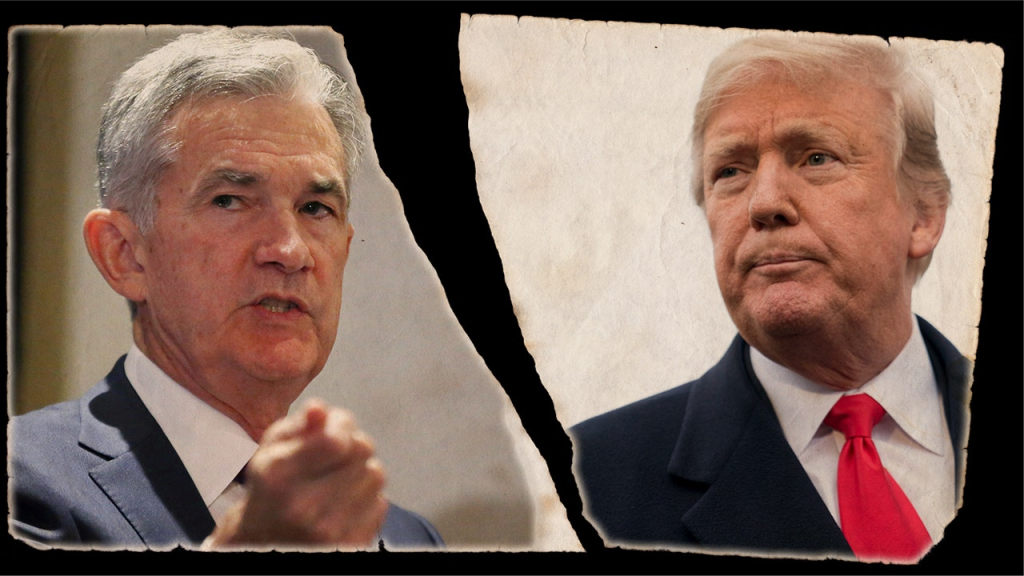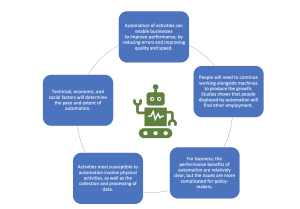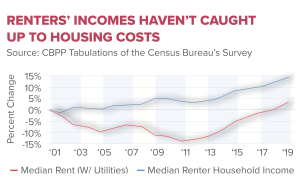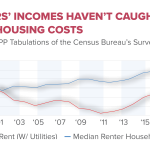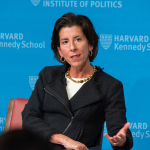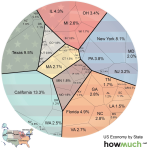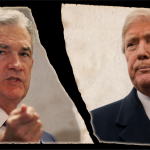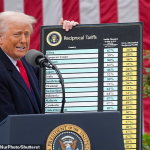In a turbulent financial landscape, the question of whether Trump can fire Fed chairman Jerome Powell is capturing the attention of investors and policymakers alike. Trump’s fraught relationship with the Federal Reserve has led to increased speculation, especially as Powell has faced pressure over the central bank’s monetary policy decisions and interest rates. After nominating Powell in 2017, Trump has publicly criticized him for not acting aggressively enough to boost the economy, hinting at the possibility of dismissal before Powell’s term ends. However, experts warn that such a move could trigger a severe market reaction, undermining the vital independence of the Federal Reserve. As the dynamics of U.S. monetary policy hang in the balance, the potential implications of firing Powell raise serious concerns about stability and credibility in financial markets.
The issue of Trump’s ability to remove the chairman of the Federal Reserve has sparked a complex debate. Amid ongoing discussions about monetary policy and its impact on interest rates, the role of Jerome Powell has never been more scrutinized. Having previously navigated contentious relations with various administrations, the Federal Reserve’s leadership faces considerable scrutiny as it aligns its strategies with economic growth. As stakeholders weigh the impact of a potential leadership change on the markets, understanding the implications of such a decision becomes paramount for economic analysts. Ultimately, the intersection of executive power and central bank independence remains a critical area of focus for economists and investors.
Understanding Trump’s Authority Over the Federal Reserve Chairman
The question of whether President Trump can fire the Federal Reserve Chairman, Jerome Powell, is a topic embroiled in legal interpretation and economic implications. The Federal Reserve Act, established in 1913, allows for the removal of governors but offers ambiguous clarity on whether the same right applies to the Chair of the Federal Open Market Committee (FOMC). While the statutory language suggests that the president could remove Powell, analysts argue that such an action could severely undermine the independence of the Fed. This independence is crucial for a healthy monetary policy that prioritizes economic stability over political considerations.
A significant aspect of this issue revolves around the ‘for cause’ protection that was historically afforded to members of the Board of Governors under the Federal Reserve Act. The complexities of interpreting the law raise questions about whether this protection extends to the chair, especially given recent legal precedents that suggest a broader interpretation of executive authority. The ramifications of attempting to remove Powell could lead to heightened market volatility, as investors fear changes in monetary policy that favor short-term gains at the expense of long-term economic stability.
Market Reactions to Potential Removal of Powell
The prospect of President Trump firing Jerome Powell has prompted considerable concern in the financial markets. Many investors anticipate that such a move would signal a shift toward looser monetary policies intended to stimulate economic growth. However, a change in leadership at the Fed—especially one perceived as aligned with the administration’s immediate economic interests—could tarnish the credibility of the central bank. This could result in rising long-term interest rates, raising the cost of borrowing as market confidence in the Fed’s independence deteriorates.
Additionally, market analysts have indicated that if the president were to act on his threats to remove Powell, it could lead to a significant market reaction before any legal adjudication occurs. Investors are keenly aware of how political pressures can manipulate monetary policy, and this awareness effectively acts as a bulwark against potential disruptions in leadership. If Powell remains in his position until the end of his term, the resulting stability may actually provide a healthier economic environment where successors to the role can transition smoothly without triggering market panic.
Jerome Powell’s Influence on Monetary Policy
Understanding Jerome Powell’s role in the Federal Reserve and his influence within the FOMC reveals a nuanced picture of central banking under his leadership. While the chair wields significant power and influence, decisions regarding monetary policy are not made unilaterally. The dynamic within the FOMC involves extensive discussions and consensus-building efforts among its members, which means that Powell’s authority, while pivotal, is part of a larger collaborative process to steer the economy. This collaborative approach contrasts with past administrations where chairs like Alan Greenspan may have had more dictative control over decisions.
Currently, Powell is navigating a complex economic landscape marked by inflationary pressures and a delicate post-pandemic recovery. His ability to manage interest rates and adjust monetary policies lies within the context of ongoing consultations and dialogue with fellow board members. This framework emphasizes the importance of maintaining the Fed’s independence from political whims, as any attempt by the president to influence monetary policy directly would likely be met with resistance from his peers and significant ramifications for market stability.
The Legal Basis of Powell’s Job Security
Legally, Jerome Powell’s position as Federal Reserve Chairman is fortified by the provisions of the Federal Reserve Act, attributing him a degree of job security. The Act outlines conditions under which governors can be removed, but the ambiguity surrounding the chair’s status injects uncertainty into the discourse regarding presidential power. Legal scholars frequently debate whether the addition of Senate confirmation for the chair position implies a safeguard against political interference or if it merely complicates the understanding of removal procedures.
The Supreme Court’s interpretations of executive authority further complicate this legal landscape. Recent rulings, notably the Seila Law decision, challenge the longstanding belief in ‘for cause’ provisions that offer protection to heads of independent agencies. This evolving legal backdrop suggests that should President Trump choose to remove Powell, he could potentially rely on a more expansive understanding of executive authority, setting a precedent that could alter the landscape of independent regulatory bodies, including the Federal Reserve.
Impact of Market Confidence on Federal Reserve Policies
Market confidence plays a crucial role in shaping the Federal Reserve’s monetary policy decisions. If the market perceives that the administration has undue influence over the Fed, it can lead to entrenched skepticism regarding the bank’s ability to uphold its dual mandate of fostering maximum employment and stabilizing prices. In turn, such a lack of confidence can result in higher interest rates as investors demand a premium due to perceived risks associated with political meddling in monetary policies.
To maintain its credibility and effectiveness as an inflation fighter, the Fed must remain insulated from political pressures. The historical lesson suggests that a well-functioning central bank operates best when it is free to make tough decisions without succumbing to short-term political objectives. As such, the implications of any potential move by President Trump to fire Powell extend far beyond personnel changes; they could fundamentally reshape the relationship between market actors and monetary authorities.
Navigating Interest Rates under Political Pressure
The Federal Reserve’s ability to navigate interest rates is profoundly affected by both its monetary policy stance and the political environment. If President Trump were to fire Jerome Powell, observers predict that this would likely indicate a tilt towards a more accommodative monetary policy—one that prioritizes immediate economic growth over long-term stability. Such a shift could include cuts to interest rates aimed at stimulating spending and investment, but it could also lead to rising inflation expectations among investors.
Moreover, the relationship between short-term economic strategies and long-term interest rates is fraught with complexity. While the Fed might respond to political demands for leniency by lowering short-term rates, the market might retaliate by increasing long-term rates due to fears of inflation. This scenario captures the essence of the delicate balancing act the Federal Reserve must play amid external pressures, emphasizing the importance of maintaining economic independence.
Consequences of Federal Reserve Chair Changes for Economic Stability
The potential removal of Jerome Powell as Federal Reserve Chairman represents a broader concern regarding economic stability in an already tumultuous financial landscape. Markets thrive on predictability, and any abrupt changes in leadership could introduce volatility that negatively impacts investment activities and consumer confidence. Analysts argue that even the threat of firing the Fed chair can create uncertainty, prompting market reactions that may destabilize both short- and long-term economic forecasts.
Furthermore, the implications of removing Powell extend into the global economic arena. The Federal Reserve holds considerable sway over international markets, and a perceived shift toward less independent monetary policy could affect foreign investment and exchange rates. Therefore, any uncertainty surrounding Powell’s tenure could echo through international financial systems, suggesting the need for careful consideration of the long-lasting ramifications that political interventions may have on the Fed’s operational integrity.
Future Implications for the Federal Reserve’s Independence
The question of maintaining the Federal Reserve’s independence in the face of political appointments is critical to the institution’s functioning and public perception. Historical precedents indicate that a strong, autonomous Federal Reserve is essential for credible monetary policy. Should President Trump pursue the dismissal of Jerome Powell, it could introduce not just temporary instability but a long-term perception of the Fed as a politically influenced body, potentially undermining trust with investors and policymakers alike.
Looking forward, the evolving legal interpretations surrounding executive power and agency independence may shape how future administrations approach leadership within the Federal Reserve. Whichever route Trump chooses, the stakes involved resonate broadly, impacting not just U.S. markets but those globally as well. As such, the permanence of the Federal Reserve’s independence may hinge on the outcome of these political and legal debates, reminding all stakeholders of the delicate balance between governance and economic stability.
Frequently Asked Questions
Can Trump fire the Fed chairman Jerome Powell?
While President Trump has expressed discontent with Federal Reserve Chairman Jerome Powell, firing him is legally complex. The Federal Reserve Act allows for the removal of the governors for cause, but it does not explicitly address the removal of the chairman. Any attempt to fire Powell could undermine the independence of the Federal Reserve and substantially disrupt market confidence.
What could happen to interest rates if Trump fires Jerome Powell?
If President Trump were to remove Jerome Powell as Fed chairman, analysts predict a significant market reaction, likely leading to an increase in longer-term interest rates. Investors may view such an action as a move towards looser monetary policy, heightening inflation fears and thereby increasing risk premiums on treasuries.
Why is there market anxiety over Trump firing the Fed chairman?
Markets are concerned that President Trump firing Jerome Powell would signal an intention for a more accommodating monetary policy. This could undermine the Federal Reserve’s credibility, particularly as it works to maintain inflation near the 2% target, causing volatility and uncertainty in investment decisions.
What are the legal arguments regarding Trump’s ability to remove the Fed chairman?
The legal landscape surrounding Trump’s potential removal of Fed Chairman Jerome Powell is ambiguous. The Federal Reserve Act provides some protection for board members but leaves much open to interpretation regarding the chairman’s position. The Supreme Court’s stance on executive authority related to independent agencies may also influence this issue.
How does Trump’s relationship with Jerome Powell affect monetary policy?
President Trump’s criticisms of Jerome Powell often stem from disagreements on monetary policy, particularly regarding interest rates. Trump has urged Powell to implement more aggressive rate cuts to spur economic growth, and such tensions can affect the Fed’s decision-making and market perceptions of its independence.
Could replacing Jerome Powell calm market fears?
The identity of a potential successor to Jerome Powell might not mitigate market jitters immediately. The removal itself could suggest a shift towards a looser monetary policy, which may not be well-received. Markets would likely monitor his successor’s stance closely to gauge future monetary policy.
What would be the implications for the Federal Reserve if Trump fires Jerome Powell?
Firing Jerome Powell could significantly damage the perceived independence of the Federal Reserve, potentially leading to a loss of credibility in its inflation-fighting capabilities. This action could create long-term consequences for how the Fed operates and is viewed in relation to executive influence.
| Key Points | Details |
|---|---|
| Tension between Trump and Powell | Trump has a contentious relationship with Federal Reserve Chair Jerome Powell, criticizing him for not cutting interest rates aggressively enough. |
| Constitutional questions about firing | The legal basis for firing Powell is uncertain; the Federal Reserve Act allows governors to be removed for cause but does not clarify terms for the FOMC chair. |
| Market reactions to potential firing | Market instability would likely occur if Trump acted on threats to fire Powell, signaling a shift toward looser monetary policy. |
| Independence of the Fed | The Federal Reserve’s independence is critical for maintaining credibility with markets, and firing Powell could undermine this. |
| Supreme Court’s potential stance | Observations suggest the Supreme Court may reconsider the precedent regarding the removal of independent agency heads, potentially affecting Powell. |
| Implications of a new chair | Markets would be apprehensive about the monetary policy direction if Powell is removed, regardless of the successor’s credentials. |
Summary
Can Trump fire Fed chairman Jerome Powell? This question has emerged amidst the complex dynamics between President Trump and the Federal Reserve. While theoretically the president could attempt to remove Powell, significant legal and market repercussions suggest such action would be ill-advised. The potential destabilization of financial markets and challenges to the Fed’s independence are critical considerations for any administration. Overall, the ongoing discussions about the future of the Fed highlight the importance of maintaining its authority and credibility in U.S. economic policy.
